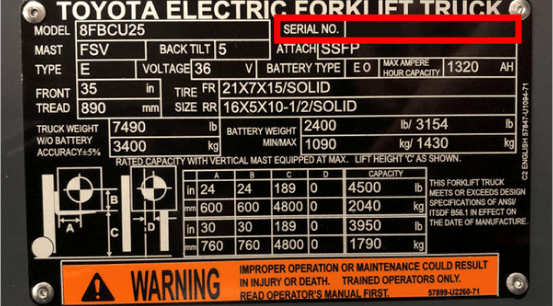The Pros And Cons Of Renting A Forklift

Are you in need of forklift and you don’t know whether you need to rent a forklift rather than buy it? Deciding the procurement method of a forklift can have a lot of long-term ramifications on your capital budget, your ROI, and even your operational efficiency. Your concern about making the right decision is well warranted. There are times where renting a forklift makes great sense for a company, but there are other situations where renting a forklift may not be the best option. This list of pros and cons for renting forklifts might help you navigate the complex decision:
Pros Of Renting A Forklift
Flexibility
Renting a forklift gives you tremendous flexibility with your operations. If your company is experiencing rapid growth or a decline in business, you can quickly add or remove forklift rentals from your fleet since determining how much to rent a forklift is an easier hurdle to overcome than purchasing or financing a forklift. This flexibility allows you to scale your operations and give you the ability to make adjustments. A forklift rental is also easily exchangeable if you need a different type of forklift at any given point in time.
Maintenance Responsibilities
With most forklift rental suppliers, routine maintenance is included. This can be a fairly large expense compared to a forklift you own. Not having to worry about routine maintenance and wearing relieves your company of managing that responsibility. However, as the rentee, you may still be responsible for paying for any damage done to the forklift while it’s rented by your company.
No Large Upfront Costs
Renting a forklift doesn’t require a down payment, a loan, or to be paid in full like a forklift purchase requires. It take the burden of owning the forklift off you and onto the supplier. The cost of renting a forklift is usually a flat weekly or monthly rate depending on how long your rental contract is for. The flat rate makes it easy to budget, especially when you don’t have the unexpected repairs and downtime associated with ownership.
Cons Of Renting A Forklift
Location
The location of your company should be a factor when you decide to rent a forklift. If you located far from a metropolitan area or do not have a rental provider near you, you may incur large transportation fees for delivering and picking up equipment. You may also pay more for your weekly or monthly fee to offset the time it takes to travel and perform maintenance on the forklift. Therefore, it may be more beneficial to purchase your forklift if your location is a challenge.
Type Of Forklift
A supplier’s forklift rental fleet is usually made up of the most common types of forklifts. If you have a specialized need, the rental supplier may not have the type of forklift that you need. In this case you should purchase the forklift customized to your company’s needs.
High Monthly Cost
A forklift rental will usually have a much high monthly cost comparatively to purchasing or leasing a forklift. The forklift company charges more for rental because they incur the cost of owning the forklift, including the repairs and depreciation. Because the forklift company has to account for these expenses, the monthly price of renting a forklift will be higher.
Taken alone, any one of these pros or cons could be the deciding factor in your decision. But I recommend taking each of these into account and fully understanding each to come to a fully-considered decision. That means, for example, weighting the relative cost with your operational need or understanding that the cost of your location might outweigh potential maintenance savings (or vice versa). Whatever you decide, make sure that you have a dedicated forklift partner and understand that being a good forklift rental partner will make your experience with renting a forklift all the more beneficial.


